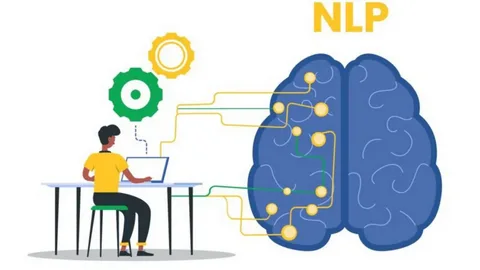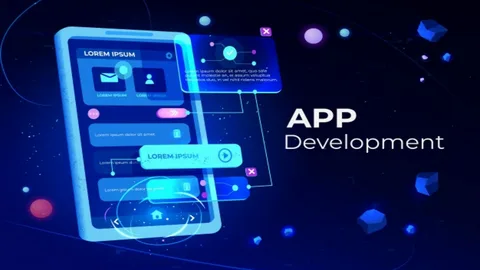Technology
The Future of Electric Vehicles Innovative Products Hitting the Market

The Future of Electric Vehicles Innovative Products Hitting the Market
Electric vehicles (EVs) are becoming increasingly popular as a sustainable alternative to traditional internal combustion engine vehicles. With advancements in technology and growing environmental awareness, EVs offer several benefits but also come with their own set of challenges. This article provides a comprehensive analysis of the pros and cons of electric vehicles.

Pexels.com
Introduction to Electric Vehicles
Electric vehicles are powered by electric motors rather than internal combustion engines. They use energy stored in batteries, which can be recharged via electrical outlets or charging stations. The rise of EVs is driven by the need to reduce greenhouse gas emissions, improve air quality, and decrease reliance on fossil fuels.
Pros of Electric Vehicles
Environmental Benefits
One of the primary advantages of electric vehicles is their positive impact on the environment. Unlike traditional vehicles that burn gasoline or diesel, EVs produce zero tailpipe emissions. This significantly reduces the amount of pollutants such as carbon dioxide (CO2), nitrogen oxides (NOx), and particulate matter released into the atmosphere.
Key Points:
- Reduced Greenhouse Gas Emissions: EVs contribute to lowering the overall carbon footprint, especially when charged from renewable energy sources.
- Improved Air Quality: By eliminating tailpipe emissions, EVs help reduce urban air pollution and related health issues.
Economic Savings
Electric vehicles offer several economic advantages over their gasoline-powered counterparts. Although the initial purchase price of an EV can be higher, the long-term savings are notable.
Key Points:
- Lower Fuel Costs: Electricity is generally cheaper than gasoline or diesel, leading to reduced operating costs.
- Reduced Maintenance Costs: EVs have fewer moving parts compared to internal combustion engines, resulting in lower maintenance and repair expenses.
Technological Advancements
EVs are at the forefront of technological innovation. They come equipped with the latest features that enhance driving experience, safety, and convenience.
Key Points:
- Advanced Driver Assistance Systems: Many EVs include features such as adaptive cruise control, lane-keeping assist, and automated parking.
- Innovative Battery Technology: Ongoing advancements in battery technology are improving range, charging speed, and overall vehicle performance.
Future Outlook for Electric Vehicles
The future of electric vehicles looks promising, driven by rapid advancements in technology and growing environmental concerns. As battery technology improves, we can expect longer driving ranges, faster charging times, and lower costs for EVs. Innovations such as solid-state batteries and ultra-fast charging stations are on the horizon, which could address many of the current limitations of electric vehicles. Furthermore, government policies and incentives aimed at promoting clean energy and reducing carbon emissions will likely continue to support the growth of the EV market. As the automotive industry shifts towards electrification, we may also see increased collaboration between tech companies and automotive manufacturers, leading to more sophisticated and user-friendly electric vehicles.
The Role of Consumer Adoption
Consumer adoption plays a crucial role in the widespread acceptance of electric vehicles. Public perception and awareness of EV benefits are improving, but there is still work to be done in educating potential buyers about the advantages of going electric. Increased visibility and accessibility of electric vehicles, along with improved charging infrastructure, will help ease concerns and encourage more people to make the switch. Additionally, as EVs become more integrated into everyday life, factors such as resale value, variety of models, and overall cost of ownership will continue to influence consumer choices. By addressing these factors and promoting greater awareness, the transition to electric vehicles can gain momentum, contributing to a more sustainable and eco-friendly future.
Cons of Electric Vehicles
Limited Driving Range
One of the main drawbacks of electric vehicles is their limited driving range compared to traditional vehicles. Although advancements in battery technology are continually improving range, it remains a concern for potential EV buyers.
Key Points:
- Range Anxiety: The fear of running out of battery power before reaching a charging station can be a significant barrier to EV adoption.
- Charging Infrastructure: While expanding, the network of public charging stations is still less developed compared to the availability of gasoline stations.
Higher Initial Costs
Electric vehicles often come with a higher upfront price compared to their gasoline-powered counterparts. This can be a deterrent for many buyers, despite the potential for long-term savings.
Key Points:
- Purchase Price: The cost of EVs is generally higher due to the expensive battery technology and limited production scale.
- Incentives and Subsidies: While various government incentives can help offset these costs, they may not be available in all regions or might be phased out over time.
Charging Time and Convenience
The time required to charge an electric vehicle can be longer than refueling a gasoline vehicle. This difference in convenience can be a significant drawback for some users.
Key Points:
- Charging Time: Depending on the type of charger and the vehicle’s battery capacity, charging can take anywhere from 30 minutes to several hours.
- Home Charging Infrastructure: Installing a home charging station requires additional investment and may not be feasible for everyone, particularly those living in apartments or rental properties.
Comparative Table: Electric Vehicles vs. Internal Combustion Engine Vehicles
| Feature | Electric Vehicles (EVs) | Internal Combustion Engine Vehicles (ICEVs) |
| Emissions | Zero tailpipe emissions | High emissions of CO2, NOx, and particulate matter |
| Fuel Cost | Lower, electricity is cheaper | Higher, gasoline/diesel is more expensive |
| Maintenance Costs | Lower, fewer moving parts | Higher, more complex engine components |
| Driving Range | Limited, improving with technology | Generally higher, depending on tank size |
| Charging Time | Longer, varies by charger type | Quick, refueling takes minutes |
| Initial Purchase Price | Higher, due to battery technology | Generally lower, more affordable options |
| Technological Features | Advanced features and innovation | Varies, generally less advanced |
| Environmental Impact | Lower, significant reduction in pollution | Higher, contributes to greenhouse gases |
Analysis Table: Pros and Cons of Electric Vehicles
| Aspect | Pros | Cons |
| Environmental Impact | Reduces greenhouse gas emissions | Limited impact if charged from non-renewable sources |
| Economic Benefits | Lower fuel and maintenance costs | Higher initial purchase price |
| Technology | Advanced features, improving battery tech | Limited driving range and longer charging times |
| Convenience | Lower operating costs | Charging infrastructure still developing |
| Health Benefits | Reduces air pollution | Limited public awareness and acceptance |
Conclusion
Electric vehicles represent a promising advancement in automotive technology, offering significant environmental and economic benefits. However, challenges such as limited driving range, higher initial costs, and charging infrastructure remain. As technology continues to evolve and infrastructure expands, the adoption of electric vehicles is expected to increase, driving further innovations and improvements in this sector.
The ongoing shift towards electric vehicles reflects a broader commitment to sustainability and environmental stewardship. For consumers considering an EV, weighing the pros and cons will be crucial in making an informed decision that aligns with their needs and values.
Consumer Services
Transforming Data into Insights: Power of NLP Development

In the digital-first era, businesses generate enormous volumes of unstructured text data every day — from customer emails and support tickets to social media posts, contracts, product reviews, and internal reports. Extracting actionable intelligence from this data requires far more than conventional database tools. It demands sophisticated natural language processing, and that is precisely where a professional NLP development company steps in to bridge the gap between raw text and strategic insight.
What Is NLP Engineering and Why Does It Matter?
Natural Language Processing (NLP) is a branch of artificial intelligence that equips machines with the ability to read, understand, interpret, and generate human language. NLP engineering transforms these capabilities into production-ready systems that operate at scale, in real time, and with the accuracy that enterprise operations demand. From sentiment analysis and entity recognition to document summarization and conversational interfaces, NLP engineering covers a wide spectrum of use cases that are fundamentally changing how organizations interact with information.
Whether you are a financial institution analyzing compliance documents, a healthcare provider processing clinical notes, or an e-commerce brand mining customer feedback, NLP-powered text analytics can surface patterns, risks, and opportunities that would otherwise remain buried in mountains of unstructured data. A trusted NLP development company helps you design, develop, and deploy these capabilities with precision and scalability.

Core Services Offered by an NLP Engineering Team
A full-service NLP development company offers end-to-end solutions across the entire NLP pipeline. This includes data collection and annotation, model selection and fine-tuning, integration with existing enterprise systems, and ongoing monitoring and optimization. The foundational services typically encompass text classification, named entity recognition (NER), sentiment analysis, topic modeling, keyword extraction, and language detection. These services form the backbone of most text analytics platforms and can be combined in powerful ways depending on the business objective at hand.
Beyond these standard capabilities, advanced NLP engineering services include question-answering systems, text summarization engines, information retrieval platforms, machine translation, intent detection, and document parsing pipelines. Each of these requires careful architecture decisions, appropriate model choices — whether transformer-based models like BERT, GPT variants, or lightweight alternatives — and integration with the client’s data infrastructure.
Text Analytics: Turning Language Into Business Intelligence
Text analytics is the applied discipline of deriving structured insights from unstructured text. When implemented by an expert NLP development company, text analytics platforms can automatically categorize support tickets by urgency, score customer feedback by sentiment, identify recurring product issues from review data, or detect compliance risks within legal contracts. These capabilities save significant time for human analysts while simultaneously increasing coverage — processing thousands of documents in minutes rather than days.
Modern text analytics solutions built by Technoyuga and similar leading service providers leverage state-of-the-art machine learning frameworks and pre-trained language models that are further fine-tuned on domain-specific corpora. This approach dramatically reduces the time to value compared to building models from scratch, while delivering superior accuracy for industry-specific language and terminology. The output is a robust, scalable analytics pipeline that integrates seamlessly with dashboards, CRM systems, and business intelligence tools.
AI-Powered Solutions Powered by NLP
The intersection of NLP and broader AI capabilities is where the most transformative solutions emerge. Intelligent chatbots and virtual assistants that understand context and intent, automated document processing systems that extract structured data from unstructured files, recommendation engines that understand nuanced user preferences in natural language. All of these represent the frontier of NLP-driven AI. An experienced NLP development company does not just implement individual models; it architects complete AI solutions that incorporate NLP as a foundational layer alongside machine learning, computer vision, and data pipelines.
The combination of real-time text analytics with predictive AI models enables proactive decision-making. For example, a customer service platform powered by NLP can not only classify incoming tickets but also predict escalation risk, recommend resolution pathways, and route cases to the most qualified agent — all without human intervention in the triage phase. These compound benefits illustrate why investing in NLP engineering services delivers exponential returns over time.
Why Partner with a Specialized NLP Development Company?
The field of NLP is advancing at a pace that makes it challenging for internal teams to stay current with the latest models, fine-tuning techniques, and deployment best practices. A dedicated NLP development company brings specialized expertise, battle-tested infrastructure, and a portfolio of proven implementations across diverse industries. This depth of experience translates into faster delivery timelines, lower risk, and solutions that are engineered for production reliability rather than experimental prototyping.
Furthermore, a specialized partner understands the nuances of deploying NLP at enterprise scale. Managing model drift, handling multilingual content, ensuring data privacy compliance, and optimizing inference latency for real-time applications. These operational considerations are often underestimated by organizations attempting to build NLP capabilities in-house, leading to costly rework and delayed deployments. Choosing the right NLP development company from the outset ensures that your AI investment yields sustainable, measurable business value.
Industries Transformed by NLP Text Analytics
Virtually every industry that handles significant volumes of text data stands to benefit from NLP engineering services. In financial services, NLP powers risk assessment from news feeds, contract analysis, and regulatory reporting automation. In healthcare, clinical NLP extracts structured data from physician notes, radiology reports, and patient records to enable better care coordination and population health analytics. Legal technology firms use NLP for contract review, due diligence automation, and litigation analytics. Retail and e-commerce platforms deploy NLP for review mining, search relevance improvement, and personalized content delivery.
The media and publishing industry uses NLP for content tagging, automated summarization, and readability analysis. Government agencies leverage text analytics for policy analysis, public sentiment monitoring, and document management. No matter the vertical, the core value proposition remains consistent: a professional NLP development company enables organizations to harness the intelligence embedded in their text data — turning information overload into competitive advantage.
The Path Forward: Scalable NLP Architecture
Building NLP solutions that scale requires thoughtful architecture from day one. This means selecting cloud-agnostic frameworks, designing microservice-based NLP pipelines, implementing proper data versioning and model registries, and establishing rigorous evaluation protocols. A forward-thinking NLP development company designs with scalability and maintainability in mind. Ensuring that your AI platform can grow with your business needs without requiring a complete rebuild as data volumes increase or use cases expand.
The future of NLP engineering lies in multimodal AI, where language understanding is combined with vision and structured data reasoning. Organizations that invest in NLP infrastructure today are building the foundation for tomorrow’s fully intelligent enterprise systems. With the right NLP development company as your technology partner, the journey from raw text data to intelligent, automated decision-making is not a distant aspiration — it is a strategic roadmap with clear milestones and measurable outcomes.
Digital Development
Unlocking Success: Essentials of Tailored Mobile App Development

The modern business landscape demands agility, innovation, and a constant willingness to adapt to shifting consumer expectations. Mobile applications have become one of the most powerful tools available to businesses of all sizes, enabling them to connect with customers, optimize workflows, and unlock new revenue streams.
However, not all mobile app development services are created equal. To truly capitalize on the potential of mobile technology, businesses need a partner that understands their unique needs and has the expertise to deliver a customized solution. That is precisely what a top mobile app development company provides — a combination of deep technical knowledge, strategic thinking, and an unwavering focus on results.
Grasping Business Requirements Prior to Coding Anything
The most effective mobile app development services begin not with coding, but with listening. Every business has its own goals, challenges, customer base, and competitive pressures. A development partner that takes the time to understand these nuances is far more likely to deliver an application that creates real value. During the initial discovery phase, experienced developers work closely with stakeholders to gather requirements, identify pain points, and define success metrics.
This consultative approach distinguishes a top mobile app development company from vendors that offer one-size-fits-all solutions. By deeply understanding the business context, developers can make informed decisions about technology choices, feature prioritization, and user experience design that align with strategic objectives rather than purely technical preferences.

Custom Development vs. Off-the-Shelf Solutions
One of the first decisions businesses face when planning a mobile application is whether to opt for custom development or an off-the-shelf product. While pre-built solutions may seem attractive due to their lower upfront costs, they often fall short when it comes to meeting specific business requirements, integrating with existing systems, or differentiating from competitors. Custom development, on the other hand, gives businesses complete control over features, design, and functionality.
Development firms help clients assess these trade-offs objectively and recommend the approach that best suits their needs. In many cases, a hybrid approach is optimal — leveraging existing frameworks and libraries to accelerate development while customizing the application to meet unique business requirements. This pragmatic approach strikes the right balance between cost efficiency and bespoke functionality, ensuring that businesses get maximum value from every dollar invested.
Technology Stacks Suited to Your Business
The technology stack underlying a mobile application has a profound impact on its performance, scalability, and long-term maintainability. Professional developers stay current with the latest technologies and frameworks, enabling them to recommend the best stack for each specific use case. For businesses targeting both iOS and Android platforms simultaneously, cross-platform frameworks such as Flutter and React Native offer significant advantages in terms of development speed and code reusability.
For applications with complex backend requirements — such as real-time data processing, machine learning integration, or high-volume transaction handling — experienced developers will architect robust server-side solutions using scalable cloud platforms and modern API frameworks. Technoyuga brings this level of technical depth to every project, ensuring that the chosen technology stack not only meets current demands but also supports the application’s long-term growth trajectory without requiring costly rewrites.
User-Centric Design as a Business Differentiator
In a marketplace where users have thousands of apps to choose from, design quality is a critical differentiator. An application that is visually appealing, easy to navigate, and responsive to user needs will consistently outperform a technically superior but poorly designed competitor. Professional mobile app development services always include dedicated UX research and UI design phases that place the end user at the center of every design decision, from color palettes and typography to navigation flows and micro-interactions.
Design is not just about aesthetics — it is about creating experiences that guide users toward desired actions, reduce friction, and build brand loyalty. A top mobile app development company will invest in user research, create detailed personas, build interactive prototypes, and conduct usability testing before finalizing the design. This investment pays dividends in the form of higher user adoption rates, better retention, and stronger app store reviews.
Integration With Existing Business Systems
Very few businesses operate in isolation. Most have existing CRM platforms, ERP systems, payment gateways, logistics tools, and marketing automation platforms that must integrate seamlessly with any new mobile application. Experienced developers understand this reality and have deep expertise in building and managing complex API integrations. They design integration architectures that ensure reliable data flow between systems while maintaining performance and security throughout.
The ability to integrate effectively with existing business infrastructure is one of the defining capabilities of a top mobile app development company. It requires not only technical skill but also a thorough understanding of enterprise IT environments and the ability to navigate the complexities that inevitably arise when connecting disparate systems across different vendors and technology generations.
Ensuring Quality Through Rigorous Testing
A mobile application that crashes, loads slowly, or behaves unpredictably will quickly lose users and damage a brand’s reputation. This is why rigorous quality assurance is an indispensable component of any professional mobile app development service. Testing must cover a wide range of scenarios including functional testing, performance testing under load, compatibility testing across devices and operating system versions, security vulnerability scanning, and user acceptance testing.
Professional development teams invest heavily in QA infrastructure and maintain dedicated testing specialists who work in parallel with engineering. This proactive approach to quality catches issues early in the development cycle, dramatically reduces the cost of fixes, and ensures that the application performs reliably from the moment it reaches users’ hands.
Post-Launch Support and Continuous Improvement
Launching a mobile application is not the end of the journey — it is the beginning. User behavior data, performance analytics, and direct feedback will reveal opportunities for improvement and new features that can enhance value over time. A reliable development partner will provide ongoing maintenance and support services that keep the application secure, performant, and aligned with evolving business needs.
Continuous improvement cycles, regular updates, and proactive monitoring are all hallmarks of a development partner genuinely invested in the long-term success of your application. Businesses that maintain this kind of ongoing relationship with their development partner are consistently better positioned to adapt to market changes and capitalize on emerging opportunities.
In summary, mobile app development services tailored to specific business needs deliver far greater value than generic solutions. By partnering with the right development firm that invests in understanding your goals, applies the right technology, designs for users, and supports you long after launch, you set your business up for sustained digital success.
Business
Hosted Call Center Solutions: The Future of Modern Call Centers

Customer support has changed rapidly over the last few years. Businesses no longer rely only on physical offices, desk phones, or complex hardware to manage customer calls. Rising customer expectations, remote work, and growing call volumes have pushed companies to adopt more flexible solutions. This shift has led to the rise of the hosted call center solution. Instead of running calls through on-site equipment, hosted systems operate through the cloud. Agents connect through the internet and manage calls using software rather than traditional phone lines.
Hosted call centers give businesses freedom from location limits and technical burden. Teams can work from offices, home, or multiple regions without changing systems. Setup is fast, scaling is simple, and daily operations become easier to manage. As customer service becomes more critical to business success, hosted call center solutions are becoming the preferred choice for modern support teams.
The Limits of Traditional Call Center Models
Traditional call centers were built around physical infrastructure. Businesses had to invest in servers, PBX systems, desk phones, and office space. These setups required high upfront costs and regular maintenance. Any change, such as adding agents or modifying call flows, often needed technical support and caused downtime.
Scaling was another major challenge. When call volumes increased suddenly, teams struggled to keep up. Hiring new agents meant purchasing hardware and expanding office space. Remote work was difficult or impossible, limiting flexibility during emergencies or workforce changes. These limitations reduced speed, increased costs, and affected service quality. Businesses needed a system that could adapt quickly without disrupting operations. Hosted call centers filled this gap.

What Is a Hosted Call Center Solution
A hosted call center solution is a cloud-based system where all call handling happens through software managed by a service provider. Calls are routed through internet connections instead of local phone hardware. Agents log in securely using a browser or application and answer calls using headsets or softphones.
Setup is simple and does not require complex installation. Businesses can activate accounts, configure call flows, and start operations within days or even hours. Contact center software plays a central role by managing calls, customer data, recordings, and agent activity in one platform. Managers monitor performance using online dashboards. Updates, security patches, and new features are handled automatically by the provider. This removes technical pressure from internal teams and keeps systems up to date.
Why Businesses Are Moving to Hosted Systems
Flexibility is the biggest reason businesses adopt hosted call centers. Teams can add or remove agents instantly based on demand. Remote and hybrid work becomes easy to manage. Costs remain predictable because businesses usually pay based on usage or number of agents.
Hosted systems also improve reliability. Cloud infrastructure offers backups and stable connections that reduce downtime.
During seasonal peaks, marketing campaigns, or emergencies, hosted call centers handle increased traffic without system overload. Contact center software supports smart call routing, ensuring customers reach the right agent quickly. This improves response time and customer satisfaction. Businesses stay agile without investing in expensive hardware or long-term infrastructure.
How Hosted Call Centers Improve Agent Work
Agent experience directly affects customer experience. Hosted call center tools are designed to be simple and easy to use. Agents learn the system quickly and focus more on conversations instead of technical tasks. Contact center software displays customer details, call history, and notes during live calls. This gives agents confidence and reduces repeat questions.
Remote access allows flexible work schedules and improves work-life balance. Agents avoid common technical issues linked to outdated phone systems. Less stress leads to better conversations and higher performance. When agents feel supported, retention improves. This reduces hiring costs and maintains service consistency across teams.
Better Customer Experience Through Cloud Support
Customers expect fast responses and clear communication. Hosted call centers meet these expectations by reducing wait times and call drops. Calls are routed smoothly through cloud systems to available agents. Contact center software keeps records of previous interactions, allowing agents to resolve issues faster.
Customers do not need to repeat information when calling again. Even during high call volumes, hosted systems maintain stable performance. This consistency builds trust over time. A reliable support experience encourages customers to stay loyal and recommend the brand. Good customer experience becomes a competitive advantage instead of a challenge.
Scalability Without Growing Pains
Scaling used to be one of the biggest challenges in call center operations. Hosted call center solutions remove this barrier. Businesses can grow without buying new equipment or expanding office space. New agents join by creating login credentials and completing basic training.
Contact center software manages increased call traffic automatically. Performance data helps managers adjust staffing levels easily. During peak demand, resources scale up smoothly. When demand slows, businesses scale down without financial loss. This balance helps control costs while staying prepared for growth. Scalability without stress is one of the strongest advantages of hosted call centers.
The Future of Hosted Call Centers
Hosted call center solutions continue to evolve with advances in cloud technology. Contact center software now includes smarter routing, analytics, and AI-driven support features. Remote work is here to stay, and hosted systems are built for this reality.
Businesses that adopt hosted models are better prepared for future customer needs. These systems support long-term growth without locking teams into rigid structures. Call centers are no longer bound by walls, hardware, or location. Hosted call center solutions are shaping a more flexible, reliable, and efficient future for customer support.
-
Business3 years ago
Cybersecurity Consulting Company SequelNet Provides Critical IT Support Services to Medical Billing Firm, Medical Optimum
-
Business3 years ago
Team Communication Software Transforms Operations at Finance Innovate
-
Business3 years ago
Project Management Tool Transforms Long Island Business
-
Business2 years ago
How Alleviate Poverty Utilized IPPBX’s All-in-One Solution to Transform Lives in New York City
-
health3 years ago
Breast Cancer: The Imperative Role of Mammograms in Screening and Early Detection
-
Sports3 years ago
Unstoppable Collaboration: D.C.’s Citi Open and Silicon Valley Classic Unite to Propel Women’s Tennis to New Heights
-
Art /Entertainment3 years ago
Embracing Renewal: Sizdabedar Celebrations Unite Iranians in New York’s Eisenhower Park
-
Finance3 years ago
The Benefits of Starting a Side Hustle for Financial Freedom





























